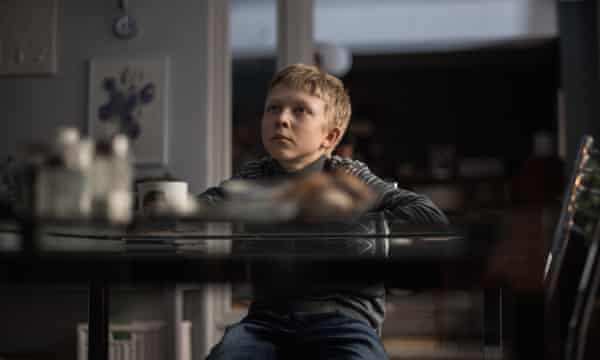Writer-director Andrei Zvyagintsev has emerged over
the past decade as the agonised conscience of Putin’s Russia, uniquely attuned
to the state’s hypocrisies and the follies of his fellow man. After a run of critically
admired yet underseen dramas – 2003’s The
Return, 2007’s The Banishment,
2011’s Elena – Zvyagintsev made a
major advance with 2014’s Leviathan,
an electrifying cautionary tale that used a property dispute to illustrate the
ability of unfeeling systems to crush individual lives. Loveless (***, 15, 127 mins), a strong contender for this year’s
Foreign Film Oscar, offers a bleaker vision yet: a story of extreme
self-interest and the world’s ghastliest divorce, it makes Bergman’s Scenes from a Marriage look like Terry and June.
Zhenya (Maryana Spivak) and Boris (Aleksey Rozin)
are modern professionals of a recognisable kind, caught up in their own lives,
careers, phones. Their separation is a given; only the future of their
ill-tended 12-year-old Alyosha (Matvey Novikov) is unclear. Zhenya, appeasing her
new man, insists Boris should have custody. Boris, tending a heavily pregnant
mistress, considers childrearing a mother’s responsibility. An erstwhile status
symbol recast as excess baggage, Alyosha has other ideas: one afternoon, he
vanishes, uniting warring guardians in a search-and-rescue quest that might, in
a Hollywood movie, be considered a prelude to reconciliation. In Zvyagintsev’s
more fatalistic cinema, it entails a journey to the end of the world.
One reason Loveless
draws us so deep into its chilly and unforgiving universe is Zvyagintsev’s
constant redefinition of these emotionally frozen characters. Call it
contrivance, call it clever dramatisation, but it feels apt that Zhenya’s
inquiries should return her to her cantankerous mother’s shack, where we intuit
exactly whence her slaphappy parenting style derives. The approach is not
unlike that of Asghar Farhadi, the Iranian filmmaker behind 2011’s lacerating A Separation. Zvyagintsev likewise converts
humdrum domestic set-ups into finely acted theatre, deploying performers with bloodhound
noses for nuance: clock the gruff cop who tries to reassure Zhenya of her boy’s
return by noting “We all enjoy comfort. Your home has that.”
Cold comforts are all we’re getting here: we’re
watching another family being dismantled under dishwater-grey skies, a scenario
that opens onto the lower depths of human nature, and heads south from there.
Still, that rigour remains valuable as an alternative to modern cinema’s glib frivolities,
as does Zvyagintsev’s whistleblower-like ability to communicate internalised
disquiet in discrete passing, as with the snatches of TV and radio commentary
layered into the action. An early clip suggests this separation is occurring during
the Obama-Romney Presidential debates of 2012 – the same year Putin ascended to
power. By the time the coda has referenced the Ukraine conflict, Loveless has succeeded in setting shivering viewers to wonder: what else has
been lost hereabouts of late?
Loveless is now showing in selected cinemas.

No comments:
Post a Comment